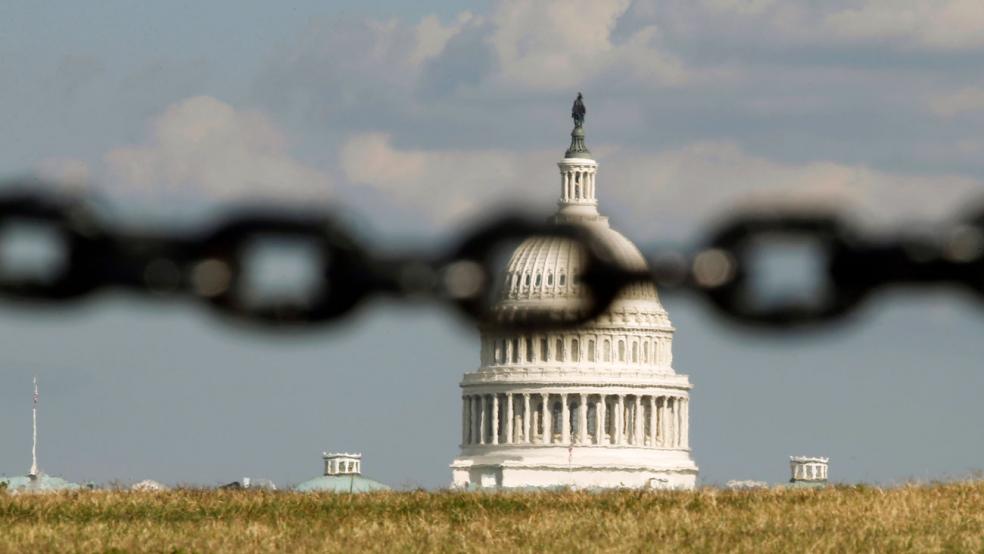Congress has 11 days to avoid a government shutdown, with the current short-term funding bill expiring on Friday, January 19. Lawmakers are expected to pass a fourth continuing resolution for the fiscal year, which began last October, buying another few weeks for Congress and the Trump administration to reach an agreement on the 2018 budget.
Once we move beyond short-term funding, though, the picture is less clear, and some analysts see a rising threat of a shutdown.
Last week the White House asked Congress for $18 billion over 10 years to pay for a border wall with Mexico, an idea Democrats have repeatedly rejected. President Trump has said funding for the wall must be part of any deal that is made to protect the children of illegal immigrants who could be deported once the Deferred Action for Childhood Arrivals program expires in March. In response to the administration’s request, Sen. Richard J. Durbin (D-IL) warned, “President Trump has said he may need a good government shutdown to get his wall. With this demand, he seems to be heading in that direction.”
On Monday, the White House downplayed the risk, with White House Budget Director Mick Mulvaney saying he doesn’t think the government will have to close as a result of a budget showdown (though not without blaming his opponents for that eventuality, just in case). “There are some folks in the Democratic Party who are interested in shutting the government down over DACA. Again, I do not think it’s going to come to that,” he told Fox News.
What the Analysts Say
Analysts agree with this assessment, at least in the short term. “We think the chances of a short-term extension passing are around 50% while a deal on a spending bill that covers the rest of the fiscal year (ending on September 30) is around 30% and the chances of a government shutdown are around 20%,” KBW's Brian Gardner said in a note to clients Monday.
Cowen Research Group’s Chris Krueger echoed the short-term sentiment, but offered a more pessimistic long-term prognosis: “Government shutdown next Friday unlikely, though a shutdown this year over DACA/The Wall likely question of when, not if.”
Budget expert Stan Collender, writing in Forbes, offered an even more pessimistic outlook, suggesting that the January 19 deadline didn’t make sense in the first place given the differences that need to be resolved — and that a short-term funding resolution may not work out.
“The idea that congressional Republicans and Democrats and the Trump administration would settle all of their differences and adopt the final fiscal 2018 appropriations by the current deadline of January 19 was always...in technical federal budget terminology...’total B.S.,’” he wrote. But while another continuing resolution would be the normal course of action, Trump might opt to veto a short-term spending bill.
Why would the president make such a move? “Government shutdowns typically happen because of emotional issues rather than substantive differences and, in what should be considered an understatement, Trump is dealing with multiple issues right now that qualify as emotional,” Collender argues. Collender concludes that a funding showdown driven by Trump’s emotional appeal to his base could be hard to resolve, opening the door to a shutdown that “could last weeks rather than days.”



